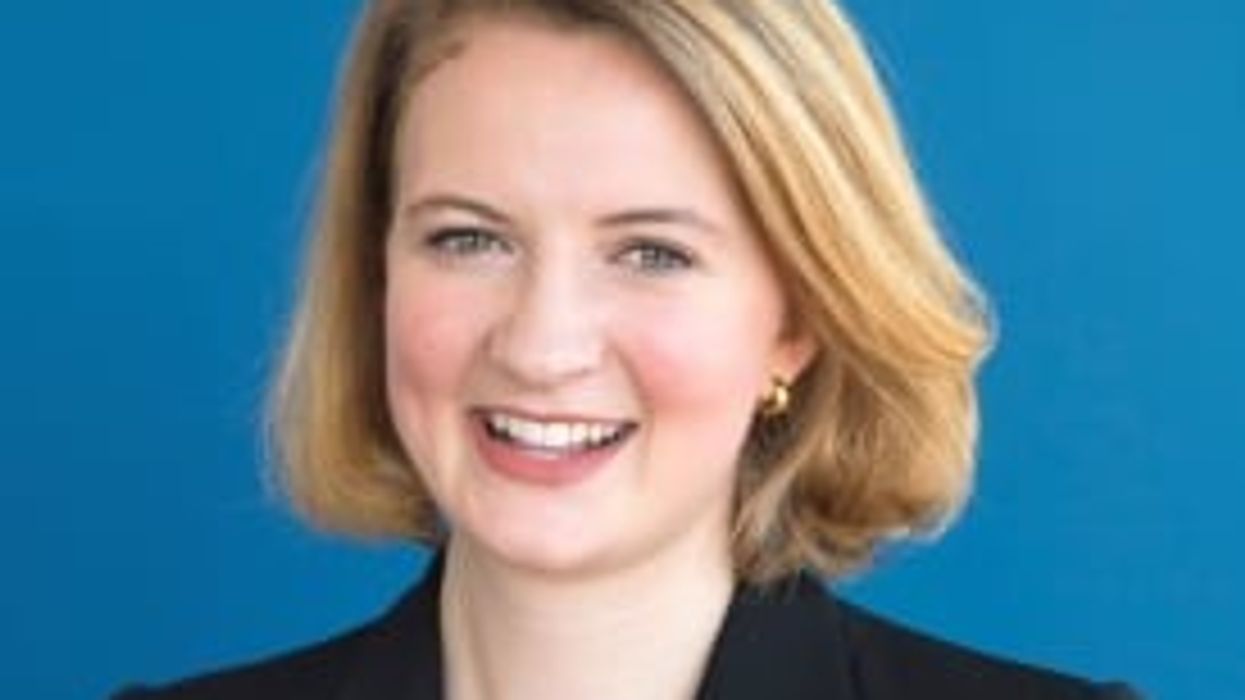TORY MP Katie Lam said the Conservatives could look to Canada as a model for recovery, calling for rejuvenation and honest communication in the party’s revival strategy following its defeat in the July election.
The Tories suffered their worst-ever electoral loss in the general election, with only 121 MPs elected, while Labour secured 411 seats.
The anti-immigration Reform UK party, led by Nigel Farage, significantly exacerbated the damage by splitting the rightwing vote and attracting former Tory supporters in key constituencies
During a webinar last Wednesday (4), hosted by the Policy Exchange think tank on the “Future of the Right Project,” Lam, who represents the Weald of Kent, said, “There is no future for the right unless there are people on the right that others can be excited and feel good about.”
Rupert LoweStressing the need for introspection, the MP called for focus on border security, migration, and public services.
Lam also noted a disconnect between grassroots Tory members, the parliamentary Conservative party, and the government. She remarked, “It was actually a lot harder to do some of the things that were promised than the party was honest about,” highlighting the need for clearer communication and realistic promises.
She suggested that the Tories could learn from Canadian Conservatives, referencing their resurgence from a “more disastrous trough” than the one the UK is currently facing. However, Lam cautioned that not all solutions would translate directly due to differing cultural contexts.
Lam acknowledged that the party’s economic and social factions do not always align. “We need to spend the next few years figuring out which of these is more important to the public and how to balance them,” she said.
Pollster James Kanagasooriam, chief research officer at Focaldata, discussed the increasingly fragmented political dynamics in the UK, focusing on migration, the economy, and the future of the right.
He challenged traditional perceptions of political alignment, saying, “Reform is not a party to the right of the consensus; in many ways, it is actually a party to the left of the consensus.”
On migration, Kanagasooriam addressed voters’ concerns, saying, “Race relations and immigration, for better or worse, are key issues.” However, he noted that many new right-wing parties hold positions that place them to the left of traditional liberal-democratic views on other ideological matters.
He said public opinion has shifted leftward on economic issues over the past decade but suggested this trend might reverse, as “politics is thermostatic,” often moving in opposition to the governing party’s direction.
James KanagasooriamKanagasooriam stressed the urgent need for a clear growth strategy, adding, “Until there is an actual theory of growth and the capability of delivering that growth… politics will continue to be in flux.” He highlighted the UK’s economic decline, pointing out that while the country’s GDP per capita was on par with the US in 2007, it has since deteriorated to be “as poor as Mississippi.”
He emphasised that the right is currently torn between “conserving” and “changing” the nation, and this indecision lies at the heart of its struggles.
“The right has to decide whether it is an economic project or a social project,” he warned, adding that coherent leadership and a unified purpose are needed to achieve stability.
Rupert Lowe, MP for Great Yarmouth and a member of Reform UK, strongly criticised the UK’s political system and proposed sweeping changes.
Lowe argued that both the Tory and Labour parties have failed to effectively govern Britain since 1997.
“Whether you’re blue or whether you’re red, it’s ironic that (Conservative prime minister) Boris Johnson won an 80-seat majority with our help and then did very little with it,” Lowe said. He claimed the civil service had become “unaccountable and inefficient.”
“The state is crowding out the private sector and inhibiting growth,” he added, citing projects like the Post Office and HS2 as examples of state failure.
Lowe also criticised the handling of immigration and public sector spending. “Immigration is out of control, and both governments have failed to address it,” he said. He warned that the state’s extensive reach and rising public spending were causing significant economic issues.
Lowe described Reform UK as a force for change, saying, “We are disruptors reflecting what the majority of people want. Our contract with the people is not just a manifesto; it is a serious commitment to delivering results.”
Charles Moore, senior fellow at Policy Exchange and the authorised biographer of Margaret Thatcher, focused on leadership, drawing insightful parallels between Thatcher’s era and the current state of conservatism, and offering a deeper analysis of its evolution over time.
Charles MooreMoore said Thatcher’s leadership was defined by her strong ability to lead decisively, winning three elections while executing much of her intended policy agenda, regardless of public opinion.
Thatcher’s rise was a response to the Tory party’s poor performance, which spurred a desire for change within the party, he explained. This ultimately led to the unprecedented decision of choosing a female leader.
Thatcher had to navigate challenges, such as a potential election at any moment, due to a slim Labour majority. This scenario differs from today, Moore argued, as the Tories do not face immediate electoral threats, giving them more room for ideological restructuring.
Moore noted that Thatcher’s leadership was characterised by strong beliefs and an ability to incorporate ideas from a broad spectrum, not just within her party. He argued that modern Tories must similarly rethink their foundational principles and be unafraid to challenge prevailing ideologies, such as the concept of equality, to regain a clear and distinct political vision.
The webinar was chaired by Paul Goodman, senior fellow at Policy Exchange and former long-serving editor of Conservative Home.




